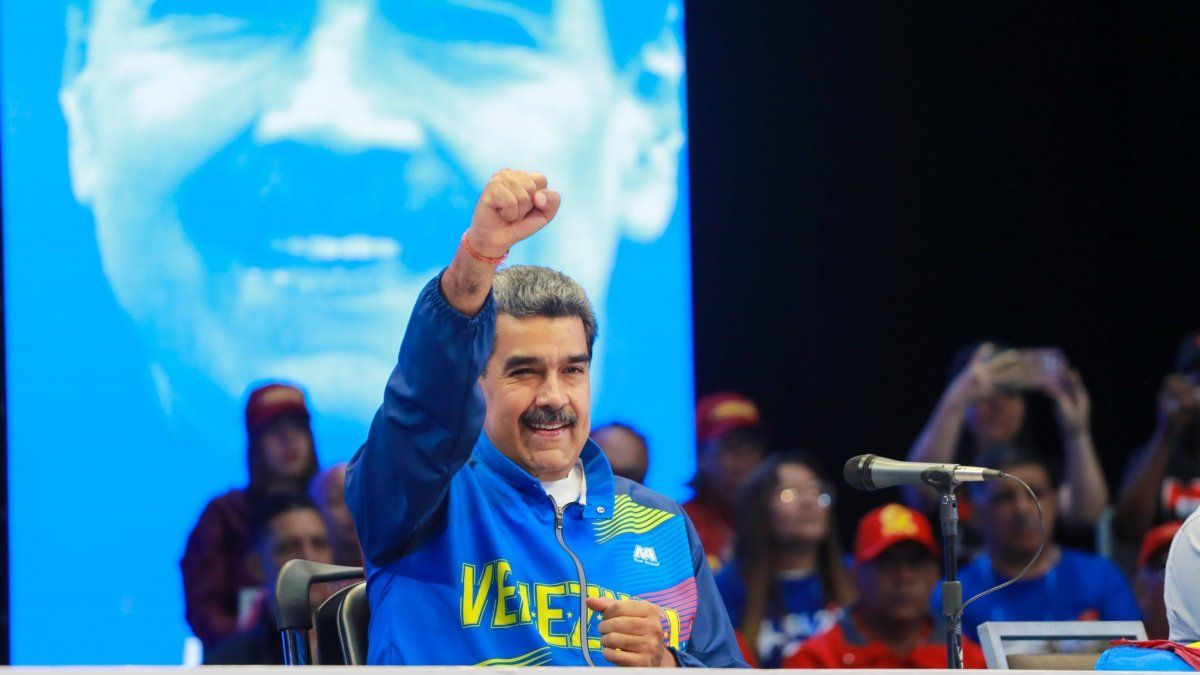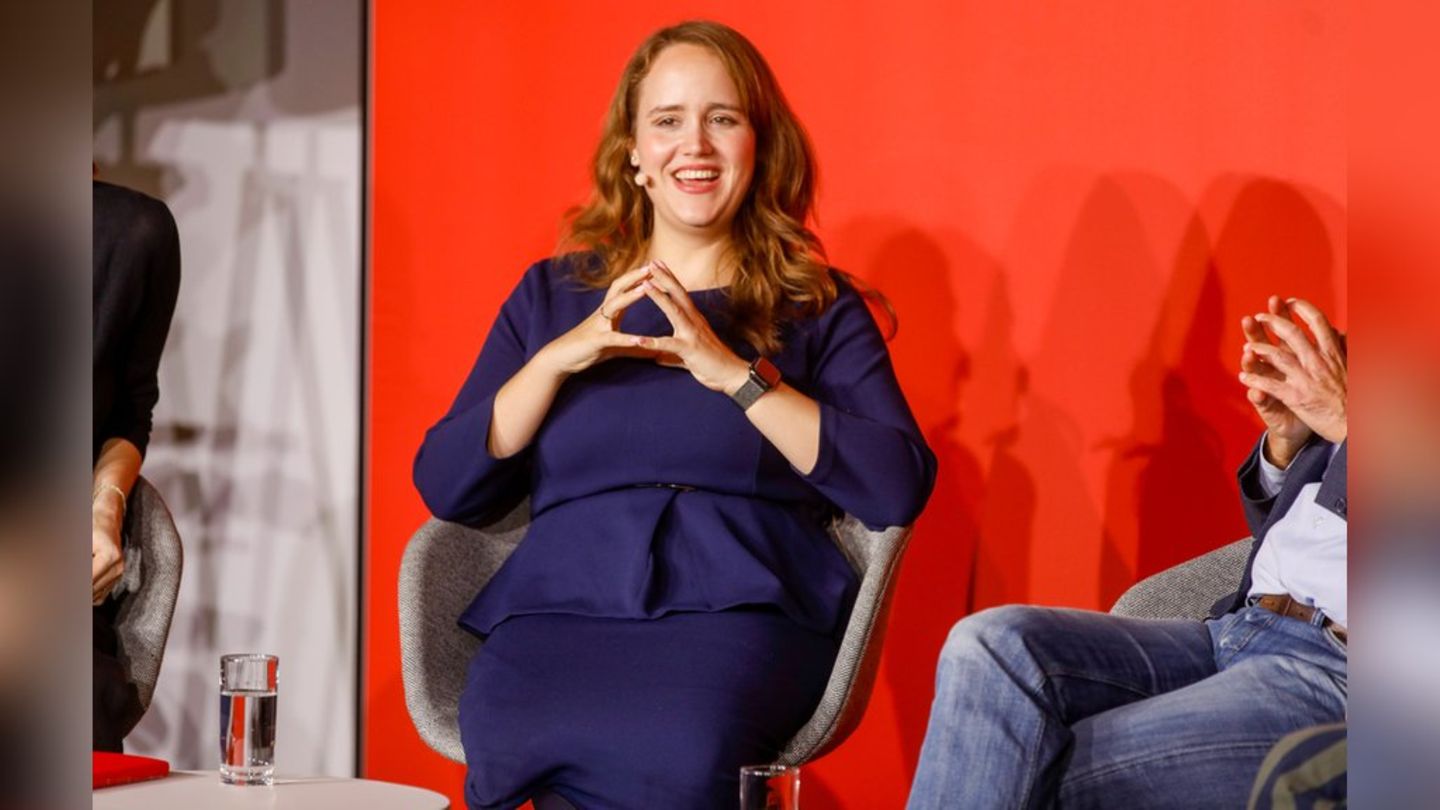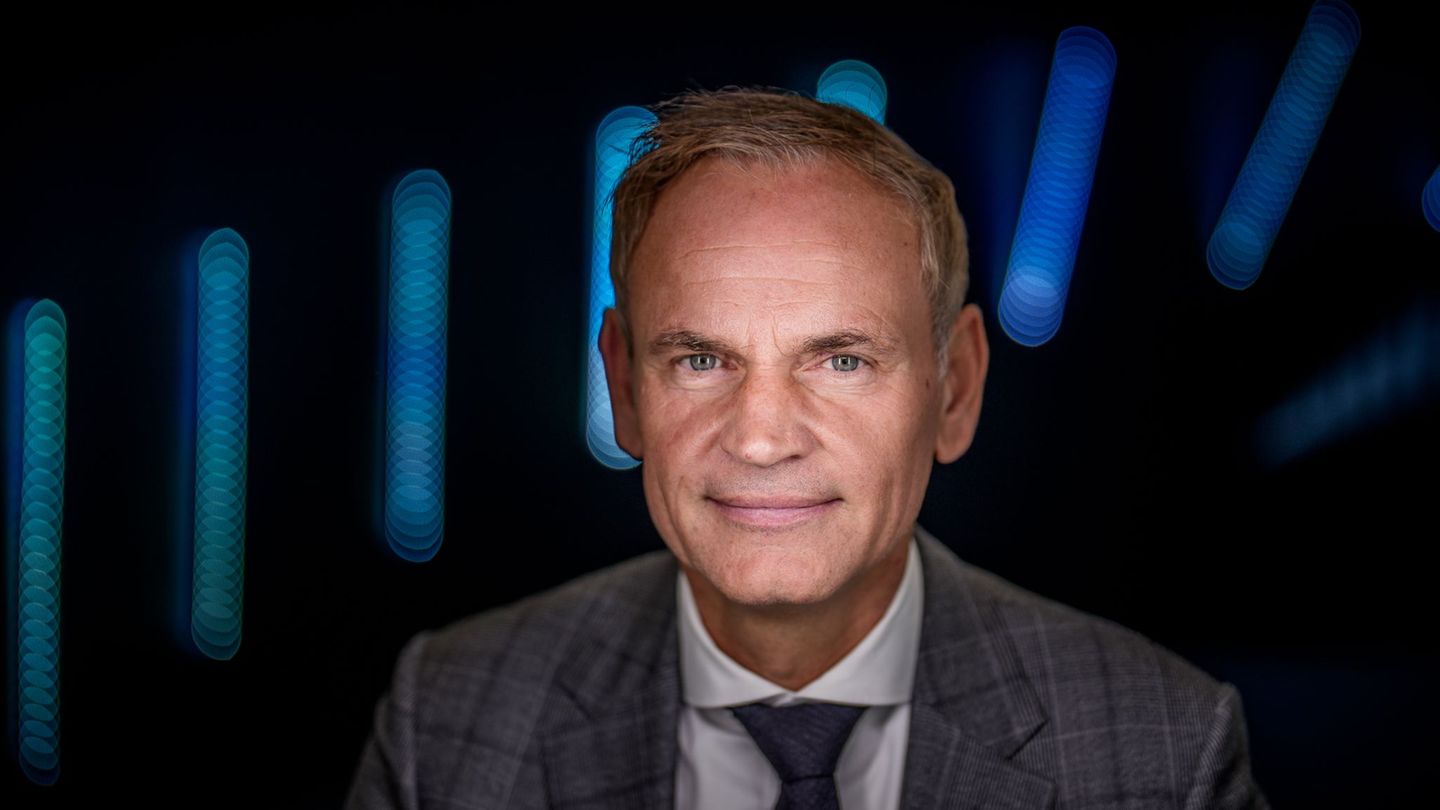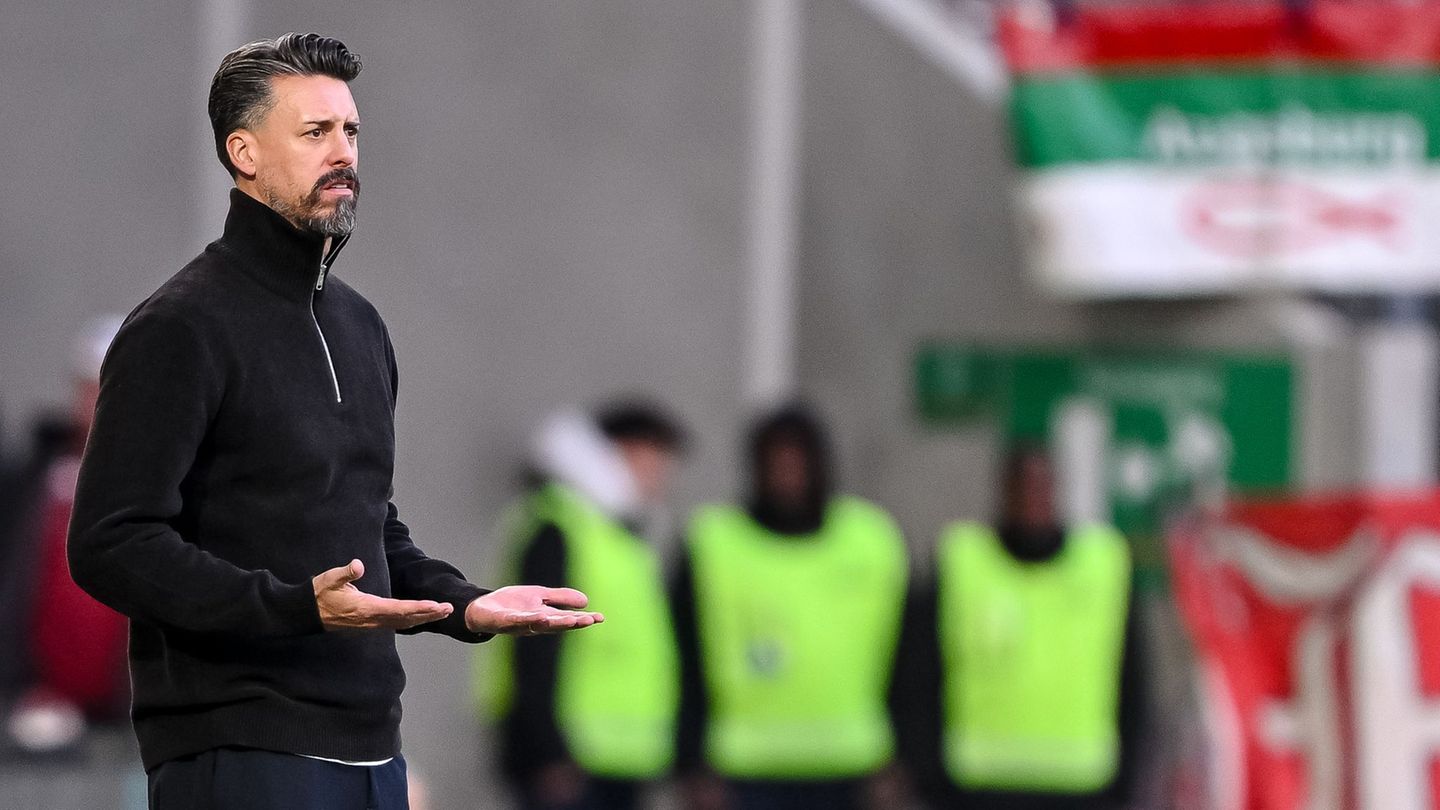To the combo of subjugation of democratic functioning in the Caribbean country, the opaque behavior of USAin the past erected as a controller – by dint of economic sanctions – of the Venezuelan future.
Ambit spoke extensively with Marcos Gomezdirector of Amnesty International (AI) in Venezuelain the run-up to the publication of the annual report on the situation of human rights in that country, to access first-hand a description of how Venezuelans live their daily lives amidst economic and civic restrictions.
“What sets off the alarms is the situation of the civic space. As there are never very worrying signs of what could happen in Venezuela, even if there is a change of government. The way in which the State, the power, relates to the citizen is quite affected,” Gómez explained. “They arrest you, they disappear you and then a video appears on television, which is a previous sentence, where other people are accused and that person did not have any type of protection from any form of torture, he was not presented before a judge, his confessions “They were not obtained with the proper protection of a lawyer,” he explained.
“Rocío San Miguel is a person who was very qualified for the military field, they completely deactivated her with one of these super confessions. The vocation is not at all that of the confrontations to which we were accustomed, but rather to completely deactivate the social fabric,” said the director of AI.
Marcos Gómez, director of Amnesty International in Venezuela
Marcos Gómez, director of Amnesty International in Venezuela.
Photo: Amnesty International / Marieke Wijntjes
As proof of this, Gómez mentioned two projects, approved in the first discussion by Parliament, that limit the functioning of civil society. One of them authorizes the formation of civil societies only if they respond to the purposes of the State and, the other, “penalizes any expression, even an expression of calling to demand something from the State, with a sentence of 12 years in prison.”
Civil associations in Venezuela were occupying more and more spaces due to the withdrawal of other usual institutions in democracy. Do you think their appearance on the government’s agenda has anything to do with that?
– There is no separation of powers. There is no way to resolve things through public debate or a deep dialogue, clashes of ideas in the National Assembly, and there is no separation of powers that people can appeal. So what is left is civil society. And well, now they’re going for it.
Things have been moving forward and worrying signs started over the past year when there was supposed to be sanctions relief. In the first year of sanctions relief, 2022, it was an incredible boom, the shortages ended, there was everything: Ferraris, incredibly luxurious buildings and that Venezuela campaign began, it was arranged, which more than a campaign was reality. There was a lot of money and then the surplus was used to the maximum to distract people’s eyes. Why do I tell you that? Because in any case the majority of the population is super poor, that is, poverty the kind that leads to hunger, to suicide.
This increase in services, from the input of private actors who are their own, made it possible to effectively achieve the reduction indicators of inflation. Of course, there is no money truly generated, but rather magical money that is on the street. But this ended in 2023 and this issue of sanctions returned to the stage [por las limitaciones de participación opositora en las elecciones, ndr]. Once again there will be an excuse that everything is bad because of the sanctions.
Are you monitoring how this new electoral attempt is going to develop?
– We do not get involved in election issues, but the human rights situation in Venezuela will definitely depend on this electoral year, because it is a long year, not only this one that is passing, but next year, in 2025. The regional elections are coming. The change of all the authorities is going to be very tense. Something of concord and advancement of rights is very complex to be registered at this time. There is an important sign of unity of the opposition and, despite the feeling that Maduro can do a whole series of pirouettes to try to jump the popular willthere is a willingness to vote as high as ever.
But imagine what will happen if the opposition wins and in six months the government changes. They have a six-month cushion that is going to be a torment for anyone who is worried about the stability of the human rights of Venezuela, because with these laws and so many other things it is going to be a very tense six months.
Venezuela protests against US sanctions
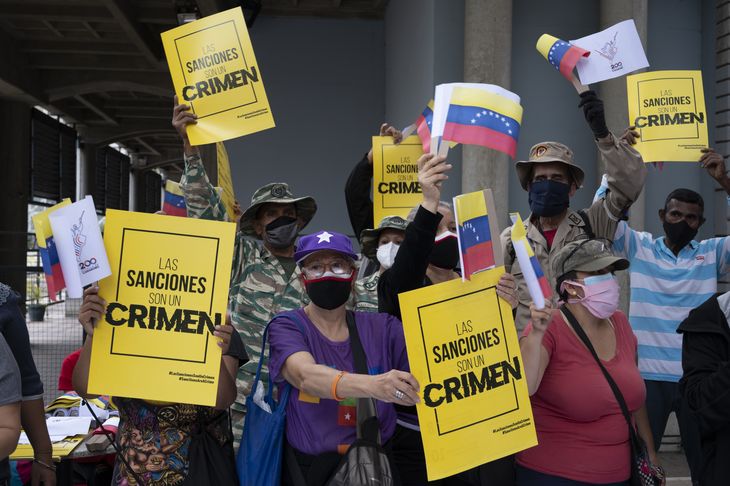
Chavista sympathizers protest against US economic sanctions (file).
Photo: AFP
What evaluation do you make of what has been the regional response to these alarms that are going off in Venezuela?
– If we had to see which government has given very confusing signals, it is the United States. What are those confusing signals? Negotiations that completely bypass civil society. At first they wanted to quickly resolve the situation. In fact, they even handed over to the government people accused of corruption, relatives of the president, and they believed that this was the way to achieve progress.
Argentina is called to play a key role in what is going to happen in Venezuela from the point of view of establishing memory and truth. This year the Independent Fact-Finding Mission on Crimes Against Humanity in Venezuela in the Human Rights Council. There is no one in the region who is willing to present that resolution. We know that the US and Europe They are willing to support, but there has to be a “champion” from Latin America who presents it. Argentina is part of the Council, meaning its Foreign Ministry has an extremely important role in doing so. We know that the Maduro government will try to eliminate that mission, which is independently operated, and maintain the Office of the High Commissionerwhich does cooperate with them in a more institutional way.
What is the difference between them? What work has the mission to determine crimes against humanity done?
– They take cases and investigate them, but the important thing is that they have established those patterns of human rights violations that must be deactivated. Venezuela, even with a change – because normally you change the authorities but maintain the military and police structures – definitely has to transform so that we can once again have a country where the citizen is the center of the State’s action.
Imagine the pressure they were working under when they were expelled from the country for a tweet (asking to know the whereabouts of San Miguel). There is no type of agreement that is public, no way to oversee and accompany as a civil society the important work it carried out. The mission has provided incredible support for the victims. It is as if Venezuela had been spared those long and painful moments of a truth commission.
What is the work of civil society like when its resources are so limited?
– The first thing you have to see is that there is a total feeling of fear that at any moment something is going to happen. I greatly admire my colleagues from other organizations that are on the ground, that are in the indigenous area, that work for women’s rights, because they are all within those possibilities. Something key is that, until the 2019 campaigns or even with the government of Hugo Chavez, you had the feeling that you had to try as hard as possible to leave no doubt that you were not breaking the law, that you were not conspiring. But now you don’t have to be guilty to be accused. It reaches the fantasy of any intelligence official who links you to any matter that does not even have to do with your field of work.
The key to the work that organizations do is that they accompany the victims. Although they do not have access to the files, the expert reports, the forensics and all these things that were normal before. The only thing that remains is that support, which has been the key to also reaching these international bodies.
From what you say, do you notice a change in pattern from the previous stage of Chavismo?
– We are seeing the change. When Chávez was still ruling, if an extrajudicial execution was recorded, you had the possibility of denouncing it, of accompanying him, sometimes you even had a response. Even when he surrounded everything, when all the powers were taken over, from the point of view of the treatment of the population there was a certain respect. With Maduro they are mechanisms to maintain the State by force. That is, maintain the government by force. A complete change.
Source: Ambito

